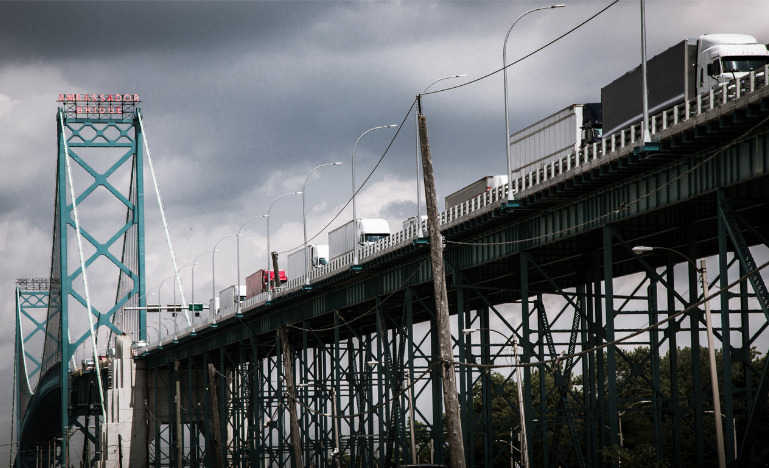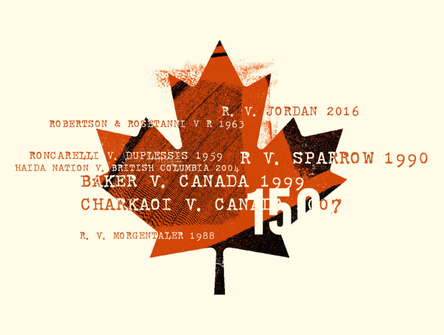Oversight at the border
Will the government’s new oversight bill ensure truly independent review of complaints filed against CBSA?

Since its creation in 2003, the Canada Border Services Agency remains the sole enforcement organization with police-like powers in the country that has no independent civilian oversight. Judges, lawyers and parliamentarians cannot have access to immigration detention facilities, as they do to correctional facilities. The only complaint mechanism available is internal to CBSA’s structure. Only agency supervisors can investigate them.
On Monday, the federal government tabled a bill looking to change that. In the last Parliament, two different bills were debated that sought to create an oversight body for CBSA. The first was a Senate bill that would have created an inspector general position with independent oversight over the agency. The office would also have the power to look into complaints, including those regarding immigration detention. The second bill, introduced by the government, would have placed CBSA under the purview of the RCMP’s Public Complaints and Review Commission.
This is the bill that has been resurrected for debate.
While the Senate bill passed the chamber unanimously, it was not sponsored in the House of Commons and died on the Order Paper. The government bill passed the Commons at the end of June, but did not see debate in the Senate before Parliament was dissolved for the election.
Public safety minister Bill Blair told CBA National that he is keen to see the government bill returned to the new Parliament as soon as possible.
“I believe that independent civilian oversight is actually essential in helping Canadians have trust and confidence in the integrity of the operations of all of their federal agencies,” says Blair. “I’m very strongly supportive of that. We did introduce this bill in the last Parliament – it’s been introduced in essentially the same form.”
The need for independent oversight is evident, according to Cyndee Todgham Cherniak, the founding lawyer of LexSage, a boutique international trade law firm in Toronto. Every year, Todgham Cherniak handles over a hundred cases of travellers who have had their Nexus cards revoked.
“In a relevant percentage of those files, a CBSA officer has acted inappropriately,” she says. “To some degree, it is at an extreme point, so when I write those letters to the recourse directorate and the complaint process is started, they spend more time justifying the behaviour of the officer to whoever is complaining than actually investigating the behaviour.”
Todgham Cherniak says there is a definite need for an investigating officer who is separate from the officers in question.
Todgham Cherniak relates stories of clients who have had egregious run-ins with agents. One ended up giving a false confession regarding a purchase in the United States while under threat that his fiancée would be strip-searched. Another had a miscarriage and was denied use of the facilities while agents confiscated her engagement ring.
“Things happen at the border, and we need oversight for when things as extreme as this happen,” says Todgham Cherniak. “Given how someone’s reputation can be damaged by enforcement action on their record and getting their Nexus card taken away, you need to have some oversight.”
Retired senator Wilfred Moore, Q.C., a non-practising member of the Nova Scotia Bar, was spurred to bring forward his bill after learning of the suicide of Lucia Vega Jimenez in immigration detention in December 2013, after CBSA threatened to deport her to Mexico.
“Our bill provided for an inspector general, and this was modelled after the system in the United Kingdom – a proven system that has been in place for years,” says Moore. “The Liberal government didn’t put it in. Instead, they referred it to the RCMP’s civil complaint body, and at the time they came before our committee, it had a backlog then of over 2000 cases of their own.” That was in 2016. (Update: The Civilian Review and Complaints Commission for the RCMP disputes the assertion regarding the backlog, specifying instead that the figure represents the approximate number of public complaints that were filed annually against the RCMP at the time).
Moore’s bill would also provide the inspector general with the power of subpoena to properly investigate those complaints.
In the three years that the government sat on it, he says, then-public safety minister Ralph Goodale never articulated a reason to him why they wouldn’t move ahead with it. In media inquiries, Goodale’s office had stated they were consulting on the matter, and that the bill had “technical flaws” – something Moore disputes given the level of attention that it received at committee, and the fact that it passed unanimously.
Todgham Cherniak says that on a surface level, it could make sense to have the RCMP and CBSA under the same investigative body, such as the government proposes. The two forces work closely together at the border. Still, she likes the idea of there being an external review commission or a tribunal.
However, Latoya Farrell, a staff counsel at the BC Civil Liberties Association, says the government bill is not ensuring meaningful independent oversight because it would create a unit within CBSA to support the Public Complaints and Review Commission.
“What happens is this unit helps support the commission by going in and doing the investigation,” says Farrell. “It looks like it stays an investigative model, but the commission would review what the agency has done and review the investigation that has occurred. While it can initiate its own investigations, basically CBSA is still investigating itself.”
Farrell adds that the appointment process for the commission does not specify that commission members can’t have RCMP or CBSA experience. Also, the legislation isn’t clear on whether or not they can enter immigration detention facilities.
“This is not exactly independent oversight,” says Farrell.
Farrell says there is merit to the inspector general model contemplated in the Senate bill. But there is ambiguity in the language around the ability to initiate investigations, and there is no provision for third parties or public interest groups to file complaints.
When asked, Blair did not say how amenable he would be to amendments to the bill in light of the criticism concerning the lack of independence.
“We look forward to the debate that will take place in the House, and the discussions and the work that will happen at committee,” says Blair.
Still, both Farrell and Todgham Cherniak appear to agree that at least some oversight would be better than none at all. It's simply that a better model may still exist. Both also have concerns about the government giving the commission sufficient resources to conduct proper oversight, if that ends up being the chosen model.
“I don’t want Lucia Jimenez’s life wasted,” says Moore. “She deserves accountability; she deserves to have a law put into place so that this won’t happen to anybody else in our country.”


